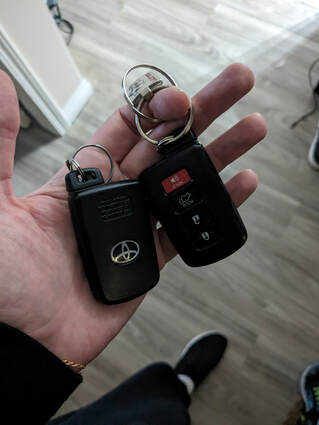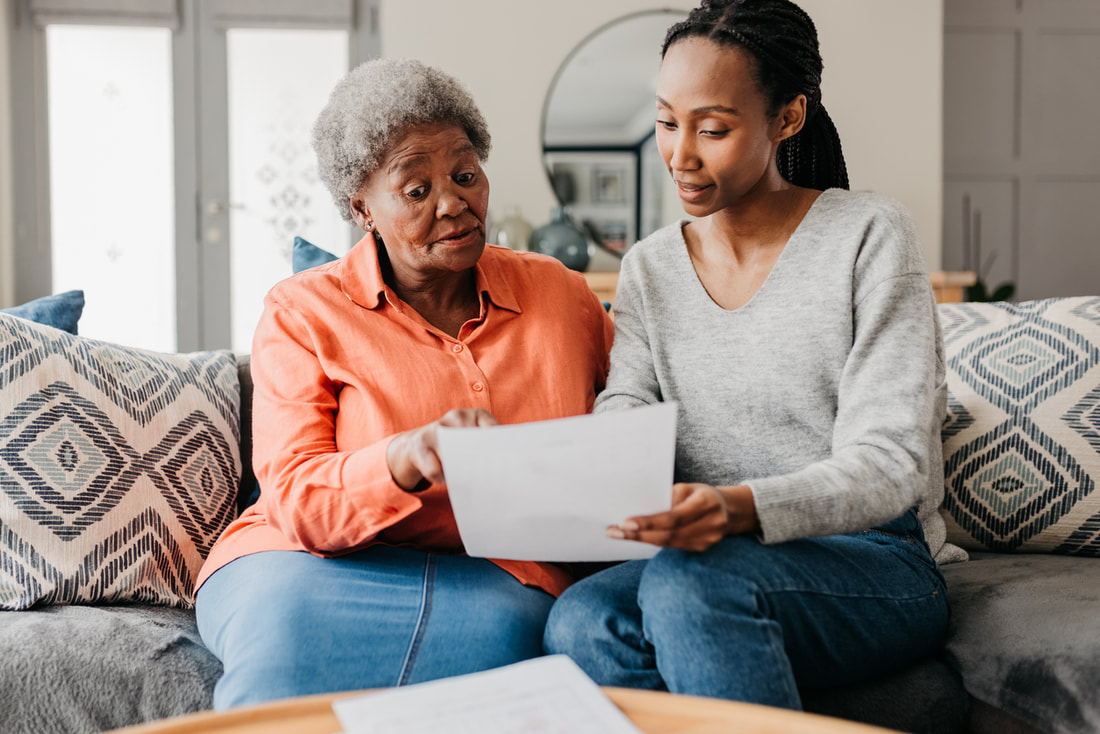 Six weeks ago, I took his keys. And in a way, his independence. He was ready, and so were we. And yet, we weren't. How is that possible? The doctor said that Dad wasn't able to drive anymore. That, due to another heart event, it wasn't safe for him or anyone else. I couldn't tell him alone and so instead of bringing my husband, I brought my five year old son. I made him ask Grandpa for his keys. See, we knew that if the keys still lived with Dad, that he would use them. That his memory is so impaired that he would drive because he forgot he couldn't. Or, even if he did remember, that the temptation to get wherever he wanted to go would be too great. So to keep him safe, we needed to take them. "Grandpa," my son asked, "Mommy needs your keys." Dad looked at me and smiled half-heartedly. His head hung as he went to retrieve the two sets from his table. "Here you go, sweetie," he muttered, "I don't want to be like your Grandpa and give them up too late, so take them now." "Dad, it's only for six months," I replied. "We both know that's not true," he finished. And he's right. We both know that his freedom is now restricted even more, and perhaps this should have happened a while ago. We don't want to jinx it or say it out loud, but we both know his body and brain will get worse, not better. We know this chapter is closed, and it hurts. Logically, I know that this is for his safety and everyone within a 10km radius that he might actually drive. I get that and the last thing I would want is for anyone to get hurt. And yet I sit here thinking of all the car conversations we've had. All the Golden Arches that have been consumed by the two of us as we drive from one ball park to another. How the man that taught me to drive, can no longer. Dramatic, yes...maybe slightly. This is the start, I can feel it. Of something new and different for us. Maybe bad, maybe good - that's to be determined. But it's a new stage for the two of us. And like any good GPS, we will navigate it together. And it's time to load the Uber app onto his phone.
0 Comments
 CBC recently put out an article entitled, "Life can change overnight. 2 families share what people should know about power of attorney." While the article primarily focuses on the stories of a spouse and sibling who step in to act as a POA for their family member, the lesson here is applicable to those of us in the sandwich generation too: Have the conversation. Seriously, get over the awkwardness and have the [bleeping] conversation. Yes, it's hard and yes, it's weird but LET ME TELL YOU, it is much harder to do this from a rehab bed or in the presence of a lawyer in the family room of the hospital. Having this conversation when you are tired and running on adrenaline is less than ideal. Trying to remember the conversation in this same state, almost impossible. I'd always known what was in my parents' wills. They were open that I had a guardian until I was 25 (Uncle Ray and Auntie Marg, you escaped being my guardian by 18 months!). I knew how their assets were to be distributed and that the will was in the filing cabinet, in the apporpriately labelled folder. But that was all I knew. As Mom was about to be transferred hospitals to have brain surgery to remove her new tumour, we realized that perhaps this document should be updated. Especially since Dad was at a live-in stroke rehab unit at a different hospital, incapable of making his own decisions. With his decision maker now heading in to get her brain tickled, maybe it was time for some of us to know what was going on and what they wanted. Someone who didn't live in a hospital who could make decisions for both of them. We also didn't know that a Power of Attorney (POA) doesn't always cover medical decisions. This was news to us as generally, when you say you're a spouse, next of kin or POA, you get access to the information or decisions. But actually, in BC, you need a Section 9 Representation Agreement. It's much simpler than a POA actually and can be printed/filled in on your own rather than with a notary or laywer but this was news to us. Lastly, we knew we needed an updated will and executor. None of us knew when their wills had been updated last which means they were certainly out of date. We knew we needed back up plan upon back up plan, in case the worst should happen. So, with a wonderful and smart laywer present, we had the conversation. I will say, the presence of a laywer made it less awkward - it turned into a business discussion rather than one full of emotion. While this single conversation helped to handle the logistics of caring for Mom and Dad, and their assets, it wasn't the only conversation. But have the conversations before you are ready. Before you need to. Earlier than you think you should. That's the perfect time. And ask these questions: 1. What do you want? What is important to you when it comes to your care and quality of life? What are your priorities for you and the people you love? 2. Where is all your stuff? Your will? Your accountant? Your tax returns? Your money, investments, account passwords? (You don't need all the contents of this info, just know where it is so you can find it should the worst happen). 3. Should you die, is there anything that's important to you for a funeral, service or post-death requests that I can honour? 4. When do you want me to step in? 5. Who is my back up, should I not be able to fulfill what you need me to? I know these are general but I hope they are good to get the conversation started. What other questions have you asked or wish people would ask as they plan for the worst? Tell me below! |
Details
AuthorBausenhaus lives in Vancouver, BC, with her husband and their two children. Archives
March 2024
Categories |
 RSS Feed
RSS Feed
